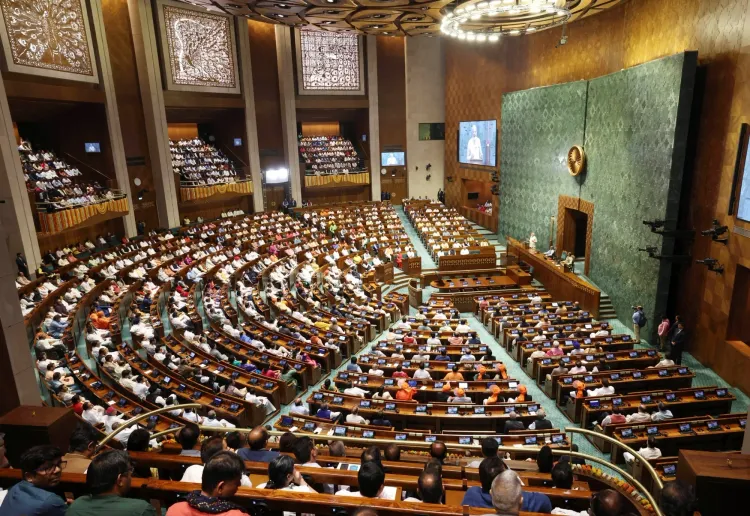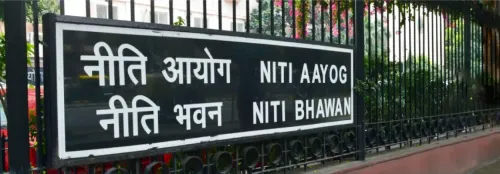Why has India consistently opposed the CPEC's role in China's OBOR?

Synopsis
Key Takeaways
- India opposes the CPEC due to sovereignty issues.
- The CPEC is part of the broader BRI initiative.
- India has consistently protested against the inclusion of CPEC.
- The project passes through Pakistan-occupied Kashmir.
- India remains vigilant regarding regional developments.
New Delhi, July 24 (NationPress) The Indian government has strongly reaffirmed its opposition to the China-Pakistan Economic Corridor (CPEC), emphasizing that it has persistently voiced its concerns to relevant parties regarding the project's role as a key element of China's One Belt One Road (OBOR) initiative, now referred to as the Belt and Road Initiative (BRI).
In a written response to a query posed in Parliament on Thursday, the Ministry of External Affairs (MEA) articulated that India has called upon all involved parties to halt activities associated with the CPEC, which traverses through Pakistan-occupied Kashmir (PoK)—a territory that India asserts is an essential part of its sovereign domain.
“India has continually expressed its misgivings to China and other stakeholders regarding the CPEC project, as it directly affects India’s sovereignty and territorial integrity,” the MEA stated.
It further clarified that India’s stance on this issue has been effectively communicated at both diplomatic and multilateral forums.
The CPEC represents a significant bilateral infrastructure endeavor between China and Pakistan, aimed at boosting connectivity and trade via highways, railways, and energy projects, as outlined by both nations.
However, its route through PoK has faced vehement objections and protests from India since the project’s inception. The initiative is a pivotal component of the broader BRI, a global developmental strategy initiated by China to enhance connectivity between Asia, Africa, and Europe.
The MEA was also queried regarding a trilateral meeting involving China, Pakistan, and Afghanistan that allegedly took place in the fourth week of May 2025, and whether discussions occurred regarding the CPEC's extension into Afghanistan.
While the ministry did not disclose specifics about the meeting, it reiterated India's disapproval of any such expansion, especially if it encroaches on Indian territory under illegal occupation.
India has consistently asserted that the BRI, in its present form, overlooks fundamental concerns relating to sovereignty and territorial integrity, leading India to abstain from participating in the initiative. This latest reaffirmation of India's position underscores its ongoing vigilance over regional developments that impact its national interests.










